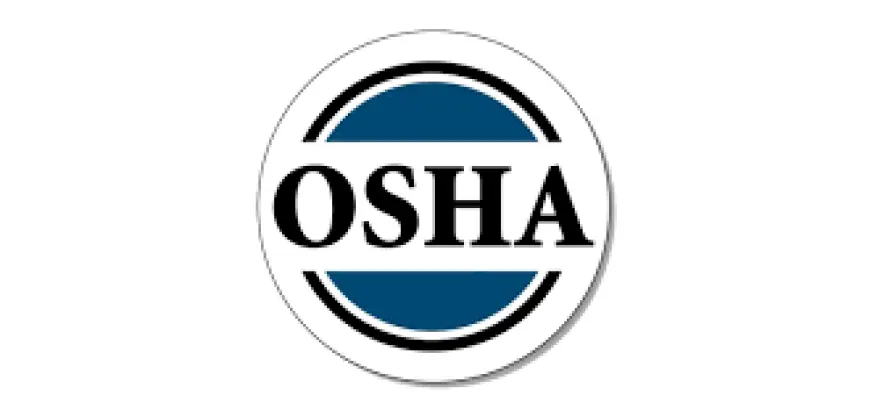How Offshore Substance Abuse Affects Teamwork, Productivity, and Mental Health
Substance abuse in offshore work harms safety, teamwork, and mental health. NEBOSH training, strict policies, and support programs help prevent risks and boost efficiency.

The offshore industry, particularly oil rigs, is known for its challenging work conditions. Long shifts, isolation, and high-pressure environments create stress, making workers vulnerable to substance abuse. The impact of substance abuse on offshore and oil rig workers can be devastating, affecting teamwork, productivity, and mental health. Addressing this issue is crucial for maintaining a safe and efficient work environment.
Employers must recognize the dangers associated with substance abuse and implement preventive measures. The impact of substance abuse on offshore and oil rig workers extends beyond the individual, leading to operational inefficiencies and workplace hazards. This article explores how substance abuse affects offshore teamwork, productivity, and mental health, and highlights the role of training programs such as the NEBOSH course fees in Pakistan in mitigating these risks.
Understanding Substance Abuse in Offshore Work Environments
1. Factors Contributing to Substance Abuse
1.1 Isolation and Loneliness
Offshore workers spend weeks or even months away from their families. This isolation can lead to stress, anxiety, and depression, increasing the likelihood of substance abuse.
1.2 High-Pressure Work Environment
The demanding nature of offshore jobs requires intense concentration and physical effort. Some workers may turn to stimulants or painkillers to cope with fatigue and stress.
1.3 Easy Access to Substances
Despite strict regulations, illicit substances and prescription medications can sometimes be smuggled onto rigs. Without proper monitoring, substance abuse can escalate.
The Effects of Substance Abuse on Offshore Operations
2. Teamwork and Communication Challenges
2.1 Breakdown in Communication
The impact of substance abuse on offshore and oil rig workers includes impaired communication skills. A worker under the influence may struggle to follow instructions, leading to misunderstandings and errors.
2.2 Reduced Trust Among Team Members
Offshore operations rely on trust and teamwork. Substance abuse erodes trust, causing resentment and creating conflicts within teams.
2.3 Increased Risk of Accidents
Oil rigs are hazardous workplaces that require precision. A single impaired worker can jeopardize the safety of an entire crew.
Productivity Decline Due to Substance Abuse
3. Impact on Work Efficiency
3.1 Increased Absenteeism
Workers struggling with substance abuse are more likely to miss shifts, affecting overall productivity.
3.2 Poor Performance
Cognitive impairment caused by substance abuse results in decreased efficiency, leading to costly delays in operations.
3.3 Higher Staff Turnover
Frequent drug-related incidents lead to disciplinary actions, increasing staff turnover rates and recruitment costs.
Mental Health Consequences of Substance Abuse
4. Psychological Effects on Workers
4.1 Anxiety and Depression
The impact of substance abuse on offshore and oil rig workers often includes severe mental health issues. Substance dependence exacerbates anxiety and depression.
4.2 Emotional Instability
Mood swings, aggression, and paranoia are common among those struggling with addiction, negatively affecting workplace morale.
4.3 Increased Risk of Suicide
Studies have shown a strong link between substance abuse and suicidal tendencies. Providing mental health support is crucial for prevention.
Steps to Prevent Substance Abuse in Offshore Workplaces
5. Implementing Strict Policies and Testing
5.1 Regular Drug Testing
Mandatory testing can deter workers from engaging in substance abuse and help identify those in need of support.
5.2 Zero-Tolerance Policy
A clear policy outlining consequences for substance abuse ensures workers understand the seriousness of the issue.
6. Providing Employee Assistance Programs (EAPs)
6.1 Counseling Services
Offering confidential support services encourages workers to seek help before addiction escalates.
6.2 Support Groups
Peer support can play a vital role in recovery, helping workers overcome addiction.
The Role of the NEBOSH Course in Substance Abuse Prevention
7. Why NEBOSH Training is Essential
7.1 Promoting Workplace Safety
The NEBOSH IGC course in Pakistan equips employers and employees with knowledge on handling workplace hazards, including substance abuse.
7.2 Educating Workers on the Risks
Understanding the impact of substance abuse on offshore and oil rig workers helps prevent addiction and encourages responsible behavior.
7.3 Strengthening Leadership Skills
Supervisors trained through the NEBOSH Course can identify early signs of substance abuse and intervene effectively.
Conclusion
Substance abuse is a significant issue in offshore industries, affecting teamwork, productivity, and mental health. The impact of substance abuse on offshore and oil rig workers is far-reaching, leading to increased safety risks and operational inefficiencies. Employers must take proactive steps, including policy enforcement, employee assistance programs, and professional training like the NEBOSH Course, to create a safer, healthier work environment. By fostering a substance-free workplace, offshore industries can improve worker well-being and overall efficiency.
What's Your Reaction?
 Like
0
Like
0
 Dislike
0
Dislike
0
 Love
0
Love
0
 Funny
0
Funny
0
 Angry
0
Angry
0
 Sad
0
Sad
0
 Wow
0
Wow
0



















































